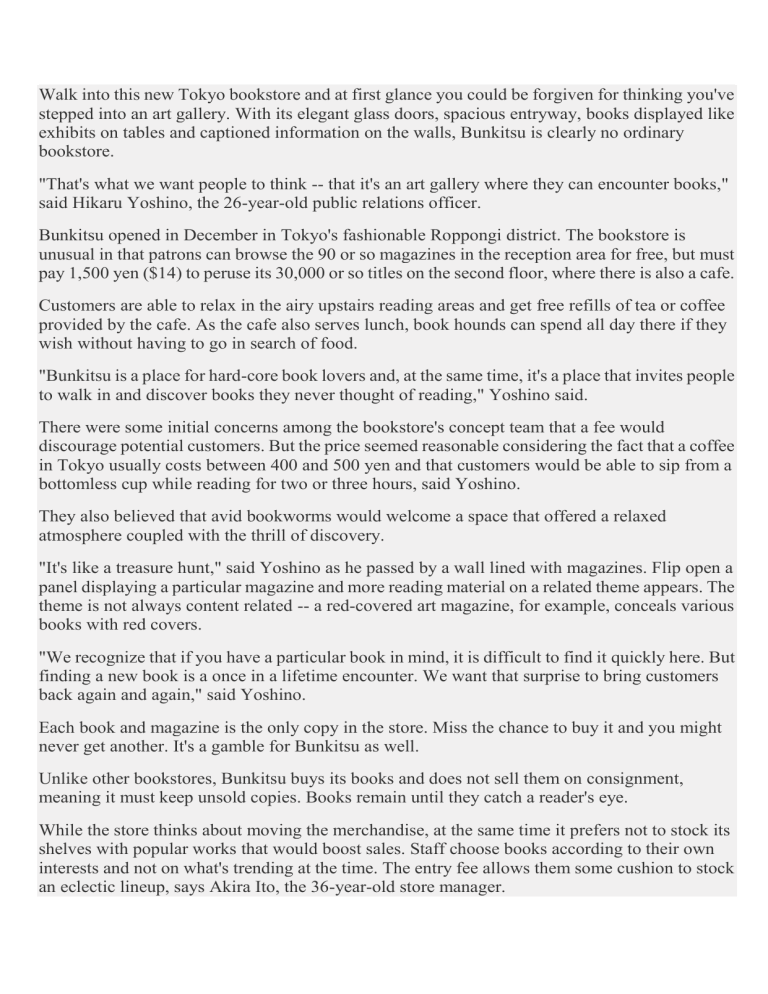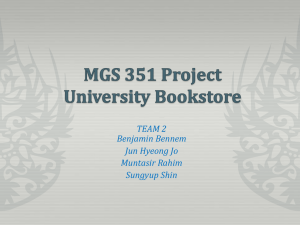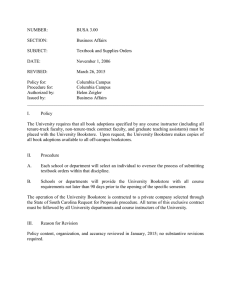
Walk into this new Tokyo bookstore and at first glance you could be forgiven for thinking you've stepped into an art gallery. With its elegant glass doors, spacious entryway, books displayed like exhibits on tables and captioned information on the walls, Bunkitsu is clearly no ordinary bookstore. "That's what we want people to think -- that it's an art gallery where they can encounter books," said Hikaru Yoshino, the 26-year-old public relations officer. Bunkitsu opened in December in Tokyo's fashionable Roppongi district. The bookstore is unusual in that patrons can browse the 90 or so magazines in the reception area for free, but must pay 1,500 yen ($14) to peruse its 30,000 or so titles on the second floor, where there is also a cafe. Customers are able to relax in the airy upstairs reading areas and get free refills of tea or coffee provided by the cafe. As the cafe also serves lunch, book hounds can spend all day there if they wish without having to go in search of food. "Bunkitsu is a place for hard-core book lovers and, at the same time, it's a place that invites people to walk in and discover books they never thought of reading," Yoshino said. There were some initial concerns among the bookstore's concept team that a fee would discourage potential customers. But the price seemed reasonable considering the fact that a coffee in Tokyo usually costs between 400 and 500 yen and that customers would be able to sip from a bottomless cup while reading for two or three hours, said Yoshino. They also believed that avid bookworms would welcome a space that offered a relaxed atmosphere coupled with the thrill of discovery. "It's like a treasure hunt," said Yoshino as he passed by a wall lined with magazines. Flip open a panel displaying a particular magazine and more reading material on a related theme appears. The theme is not always content related -- a red-covered art magazine, for example, conceals various books with red covers. "We recognize that if you have a particular book in mind, it is difficult to find it quickly here. But finding a new book is a once in a lifetime encounter. We want that surprise to bring customers back again and again," said Yoshino. Each book and magazine is the only copy in the store. Miss the chance to buy it and you might never get another. It's a gamble for Bunkitsu as well. Unlike other bookstores, Bunkitsu buys its books and does not sell them on consignment, meaning it must keep unsold copies. Books remain until they catch a reader's eye. While the store thinks about moving the merchandise, at the same time it prefers not to stock its shelves with popular works that would boost sales. Staff choose books according to their own interests and not on what's trending at the time. The entry fee allows them some cushion to stock an eclectic lineup, says Akira Ito, the 36-year-old store manager. Customers come in many varieties. "I came here because my friend recommended this place and I wanted to get some new ideas for my job," said Keito Kondo, a 28-year-old who does marketing for a beer company. "I thought I might see books I hadn't thought of," he said as he sat in the cafe with a number of titles in front of him on sparking inspiration. "I usually buy books that I want from Amazon, but here I found books that I usually don't read, such as on architecture and art." "I didn't realize that I was interested in fashion until I came here," said Masato Torikoshi, an 18-year-old student who enjoys studying at Bunkitsu. He twirls his chair to face stacks of fashion books on Issey Miyake, Marc Jacobs and Valentino. "When I need a breather, I pick up a book behind me and riffle through the pages." It's the type of relaxed atmosphere Bunkitsu aims to sell. "I was happy to see a customer stretch himself full length against a cushion and read," Ito said. In the back is an elevated platform against a large window where customers can kick off their shoes, lie against one of the colorful cushions and chat, read or drink coffee. A 45-year-old hairdresser, enjoyed the space one Monday afternoon. He said that the price was well worth it as people could stay there the whole day. "You can enjoy the sense that you have your own private room," he said, coffee in hand. Bookstores are closing down throughout Japan, says Yoshino, citing online behemoth Amazon and the popularity of e-books as possible reasons. But whether the Bunkitsu approach can stem that trend remains to be seen. He says he is "not sure" if the bookstore's business model can be exactly replicated elsewhere. While it works in Roppongi, another approach might be needed in a rural area, he said. "You have to look at what's distinctive about a location. That could lead to different types of bookstores." 1. Bunkitsu is not your usual Bookstore. Mention 2 reasons on why this might be true. A.______________________________________________________ B. ______________________________________________________ 2. What is the initial concerns among the bookstore team about the concept? _______________________________________________________________________ 3. How many customers are being interviewed in the article? ________________________________________________________ 4. Some said that the price of Bunkitsu is worth it. Explain why in your own words. __________________________________________________________________________ __________________________________________________________________ 5. What makes Bunkitsu different from other bookstores out there? __________________________________________________________________________ ______________________________________ 6. How about the customers? Name Job Comments 7. Bunkitsu was opened in _____________________ in a fashionable ___________________ district. 8. It’s a type of __________________ atmosphere that Bunkitsu was aimed to sell. 9. Bookstores are closing through Japan due to the popularity of online bookstores such as _______________________. 10. Bunkitsu has __________________ glass doors,________________ entryways, and books displayed like ____________________ on the tablets. 11. Customers come in many ____________________ . 12. Yoshino is not sure whether the same business model such as Bunkitsu could be replicated __________________. True/ False? 13. Masato Torikoshi is the relation officer of Bunkitsu. _____ 14. Ito is happy to see customers enjoy their reading in Bunkitsu. ______ 15. Keito Kondo found books he usually don’t read in Bunkitsu. ______ 16. Bunkitsu gives only relaxing atmosphere. ________ 17. Bunkitsu is not a place to search for inspiration. _________ 18. Books in Bunkitsu remains for sell until they catch the reader’s eye. ________ 19. Customers has to pay 1.500 Yen to enjoy Bunkitsu. _____________

